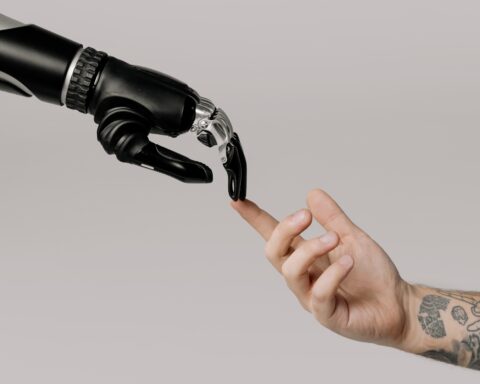In a mesmerising display of creativity and innovation, the recent AI film festival organised by Runway AI has unveiled a collection of short films that offer a tantalising glimpse into the future of storytelling.
With nearly 3,000 submissions, this festival showcases the boundless possibilities of AI-powered video generation, highlighting the diverse talents of filmmakers and the transformative potential of artificial intelligence in the realm of cinema.
Diverse Narratives, Aesthetic Universes
One of the most striking features of the selected films is their diversity. Contrary to the notion of a homogenized AI-driven style, each film presented at the festival possesses a unique voice and aesthetic.
According to Anastasis Germanidis, co-founder and chief technology officer of Runway, this diversity underscores the versatility of AI as a creative tool, enabling filmmakers to explore a myriad of imaginative worlds and narratives.
The films transport audiences to visually stunning universes populated by fantastical characters, from mud people to giant grandmothers.
Drawing inspiration from classics like “Inception,” “The Matrix,” and “Loving Vincent,” these shorts demonstrate how AI technology can be leveraged to produce cinematic experiences that rival those created with traditional methods.
Democratizing Filmmaking
What sets this festival apart is not only the quality of the films but also the democratization of the filmmaking process.
With advancements in AI technology, filmmaking is no longer confined to those with access to substantial budgets and professional equipment.
Runway, for instance, empowers creators to bring their visions to life with just a prompt and a computer, drastically reducing the barriers to entry for aspiring filmmakers.
Leo Cannone, a French director whose short film received an Honoree prize, utilized AI applications like Midjourney and Runway to generate and animate hundreds of images.
Despite the remarkable capabilities of AI, Cannone acknowledges its limitations, particularly in the portrayal of human characters and dialogue.
However, these constraints did not hinder his creative process, but rather shaped the aesthetic and narrative of his film.
The Evolution of AI Technology
While AI filmmaking holds immense promise, it is still a nascent field grappling with technological limitations.
Alejandro Matamala, co-founder of Runway, acknowledges that current AI systems are not yet capable of producing photorealistic human characters.
However, he emphasizes that the focus is on exploring alternative storytelling methods rather than replicating traditional approaches.
Runway’s ambitious project, “General World Models,” aims to simulate real-world environments by predicting future events in dynamic settings.
This endeavor reflects the company’s vision of creating a “common language” for programming and creativity, akin to the pioneering efforts of companies like Apple and Pixar.
Disrupting the Hollywood Paradigm
The rise of AI filmmaking poses a significant challenge to the traditional Hollywood model. Carlo De Togni, an award-winning director, sees AI as a democratizing force that enables independent filmmakers to compete with industry giants.
With subscription-based AI platforms offering accessible tools for as little as $30 or $50 a month, the barriers between independent and mainstream productions are rapidly eroding.
However, this disruption has sparked concerns within the industry, leading to protests and strikes by actors and screenwriters demanding protection against generative AI.
Despite these challenges, De Togni believes that the future of filmmaking lies not in the technology itself but in the creativity and vision of storytellers.
Embracing Change
As AI continues to reshape the landscape of filmmaking, questions arise about its impact on industry jobs and creative autonomy.
Cristobal Valenzuela, CEO of Runway, emphasises that while automation may change the nature of certain roles, it also opens up new possibilities for innovation and collaboration.
Ultimately, the evolution of AI filmmaking is not about replacing human creativity but augmenting it.
As filmmakers navigate this technological frontier, they must embrace change and harness the power of AI to unlock new realms of storytelling previously unimaginable.
The AI film festival represents more than just a showcase of technological prowess; it symbolizes a paradigm shift in the art of cinema.
By pushing the boundaries of creativity and accessibility, AI is revolutionising filmmaking and paving the way for a future where anyone with a story to tell can bring it to life on the silver screen.






